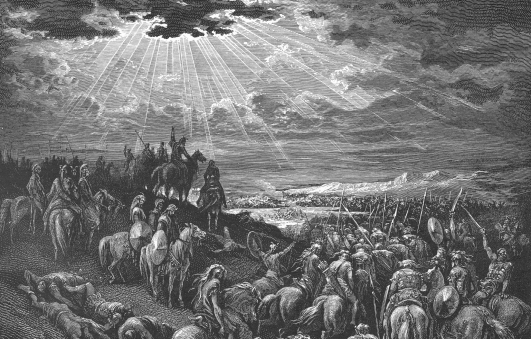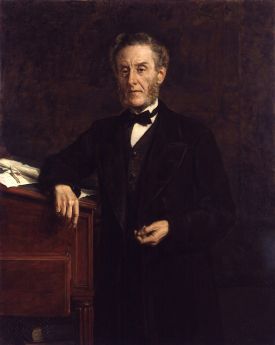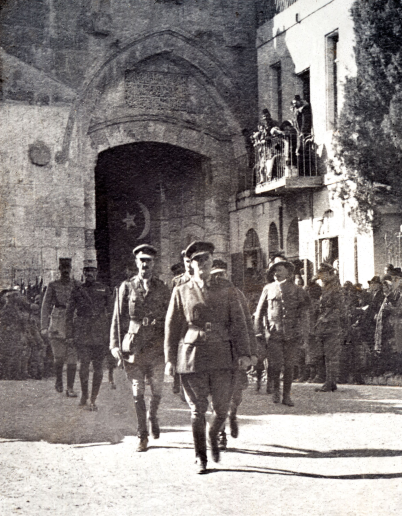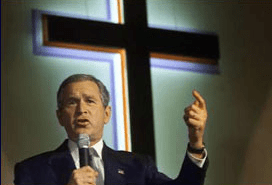The Ancient Roots of Zionism

Although the return of the Jews to the Promised Land did not become an active struggle until the late nineteenth century (and even then had the support of only a minority of world Jewry[]), it has always been part-and-parcel of Judeo-Christian belief: in the Bible, God commands the Israelites to seize the land of Canaan (i.e. Palestine) through the depopulation and resettlement of its indigenous “heathen” population (Deut. 7:1-3):
When the Lord your God brings you into the land you are entering to possess and drives out before you many nations—the Hittites, Girgashites, Amorites, Canaanites, Perizzites,Hivites and Jebusites, seven nations larger and stronger than you— and when the Lord your God has delivered them over to you and you have defeated them, then you must destroythem totally. Make no treaty with them, and show them no mercy.
Later on, God sends the Jews into exile for their “sins”, while predicting that the Messiah will one day come and lead them back to the Holy Land.
Thus, unless David Ben Gurion was the Messiah, the creation of Israel in 1948 seems to be a little premature. Nonetheless, the Zionist conquest of Palestine remains a matter of doctrine in the Judea-Christian tradition. Attempts to distinguish between the Judeo-Christian tradition and Zionism are thus fundamentally flawed.
Outside of the Jewish historical record, we find “zionism” reflected in centuries of Western Christendom. In 1649 for example, Amsterdam-based Ebenezer and Joanna Cartwright petitioned Oliver Cromwell to readmit Jews into England and to help transport them to Palestine. Similarly, Denmark’s Holger Paulli wrote to William III of England and Dauphin of France urging them to return the Jews to Palestine2.
Other early Christian Zionists include Michael Servetus and Francis Kett, theologians Isaac de La Peyrere and Thomas Brightman, Sir Henry Finch, Joseph Eyre, American theologian Increase Mather, Isaac Newton and theologian John Milton. Even France’s Napoleon Bonaparte delved into a bit of early zionism3:
During his invasion of Egypt and Palestine (1798-99), and anticipating the capture of Jerusalem (something that did not happen), Napoleon prepared a Proclamation promising the Holy Land to the Jews, whom he characterised as “the rightful heirs of Palestine”.
The notion of Jewish restoration in Palestine was thus already widely circulated among Western Christians long before the formal Jewish Zionist movement emerged in the 19th century: the “divine promise” prophesied in the Old Testament.
The Creation of the State of Israel

Lord Shaftesbury
In 1839, Lord Shaftesbury delivered the first proposal by a British politician to return the Jews to the “Holy Land”. The following year, he forwarded his proposal to Europe’s Protestant monarchs in a memorandum1. After getting a British vice-consul and bishopric set up in Jerusalem, Shaftesbury co-founded the Palestine Exploration Fund. Balfourproject.org describes this pioneer of early Zionism1:
As both a committed Christian and a loyal Englishman, Shaftesbury argued for a Jewish return to Palestine because of what he saw as the political and economic advantages to England and because he believed that it was God’s will. He saw the conversion of the Jews as a means of bringing the whole world to faith before Christ returned.
Britain backed the Zionist project not only for strategic reasons3, but also because of rampant Christian Zionism among its key statesmen4. To quote Geoffrey Alderman in the Jewish Chronicle 8/11/12:
The Balfour Declaration was born out of religious sentiment. Arthur Balfour was a Christian mystic who believed that the Almighty had chosen him to be an instrument of the Divine Will, the purpose of which was to restore the Jews to their ancient homeland — perhaps as a precursor to the Second Coming of the Messiah. The Declaration was thus intended to assist in the fulfilment of biblical prophecy. This appealed to Lloyd George, whose private immorality did not prevent him from believing in the prophecies of a Bible he knew inside out.
Such fanaticism was by no means confined to Balfour. To quote Noam Chomsky5:
Christian Zionism is a very significant force. It goes back way before Jewish Zionism. It was an elite phenomenon. Lord Balfour, Lloyd George, Woodrow Wilson, Harry Truman read the Bible every morning. It says there, “God promised the land to the Jews.”…[It] is part of the demographic base of the Republican Party – extremely anti-Semitic, but pro-Israel…

“Today the crusades have ended”. Britain’s General Allenby upon conquering Jerusalem
The majority of the British cabinet at the time was steeped in Calvinist evangelicalism6. Balfour’s mother, sister of thrice Prime Minister Lord Salisbury, gave her son daily Bible lessons and distributed Gospel tracts at the local railway station7.
Prime Minister Lloyd George, who oversaw the Zionist project, also had an evangelical upbringing. In 1925, he informed the Jewish Historical Society how his education had steeped him in Jewish history, boasting that he could name “all the kings of Israel”. Scott Anderson describes Mark Sykes’ motive for backing the Zionist project3:
A devout Catholic, he regarded a return of the ancient tribe of Israel to the Holy Land as a way to correct a nearly two-thousand-year-old wrong. That view had taken on new passion and urgency with the massacres of the Armenians. To Sykes, in that ongoing atrocity, the Ottoman Empire had proven it could never be trusted to protect its religious minority populations. At war’s end, the Christian and Jewish Holy Land of Palestine would be taken from it, and the failure of the Crusades made right.
Modern Day Crusades

When Bush II used the term ‘crusade’ after 9/11, many claimed it was just a badly chosen word. But was it really poorly chosen? His administration was packed with Zionists. John Ashcroft attacked Islam after 9/11 while Italy’s Berlusconi characterised the ‘war on terror’ as a war between Western and Islamic civilisations.
Wesley Clark, bizarrely as an argument against Sam Huntington’s “clash of civilizations” thesis and for a peaceful resolution of “differences”, said the following during his 13/5/02 commencement speech at Seton Hall University:
…[others] recognize a civil war within Islam itself…we must influence the struggle where we can, by supporting greater attention to the secular structures in the Islamic world, and by encouraging our own American Islamic community to speak out in support of America’s democratic values.
As of 2005, 40% of the U.S. military were evangelical Christians, including 60% of chaplains. Military Ministry alone has converted thousands of troops, approved by Fort Sam Houston’s top commanders. Fort Jackson, meanwhile, is literally run by evangelical commanders. According to one senior military official cited by the Pentagon’s IG report (7/07): “Campus Crusade for Christ had become so embedded in the Pentagon’s day-to-day operations that he viewed the organization as a “quasi federal entity””8.
Drew Miller states9:
Evangelicalism wasn’t always this prevalent in the military. In fact, through World War II, religion was not a major source of contention at all…That changed with the Cold War. Suddenly, communism and godlessly were inexorably linked, meaning any good American soldier should declare devotion to a god, and preferably the Christian one…
- Balfourproject.org
- Graetz, Heinrich; Lowy, Bella (December 2009). Bella Lowy (ed.), History of the Jews, Vol. V (in Six Volumes): From the Chmielnicki Persecution of the Jews in Poland (1648 C.E.) to the Period of Emancipation in Central Europe (C. 1870 C.E.) (Cosimo, Inc. 2009), pages 176–7
- “With the advent of steam navigation in 1840, the Near East became very important along the route to India as steam ships required frequent reloading and the British ships used the Mediterranean-Red Sea route with transhipment at Suez rather than the long Cape route. In view of all this, British involvement in the Jewish question was no longer a matter of political option but of political necessity”. Zionism: a racist and anti-Semitic ideology Lalkar.org; “By the Entente’s coming out in strong support of a Jewish homeland in Palestine, [Mark] Sykes believed, it would inevitably turn the opinion of international Jewry toward its side. In turn, the advocacy of American Jews – a small but powerful constituency – might finally provide the spur for bringing the United States into the war”. Scott Anderson, Lawrence in Arabia (Atlantic Books: London 2014), pages 229-30
- Tom Segev, One Palestine Complete (), page 33
- Noam Chomsky and Ilan Pappe, On Palestine (Penguin Books 2015), pages 61 and 83
- Donald M. Lewis, The Origins of Christian Zionism: Lord Shaftesbury And Evangelical Support For A Jewish Homeland (Cambridge University Press 2014), page 329
- ibid. 4
- Jason Leopold, Military Evangelism Deeper, Wider Than First Thought truth-out.org 21/12/07
- Drew Miller, Inside the Military’s Campaign to Make Its Soldiers Christian mic.com 4/9/13


Reblogged this on WeatherEye.
LikeLike